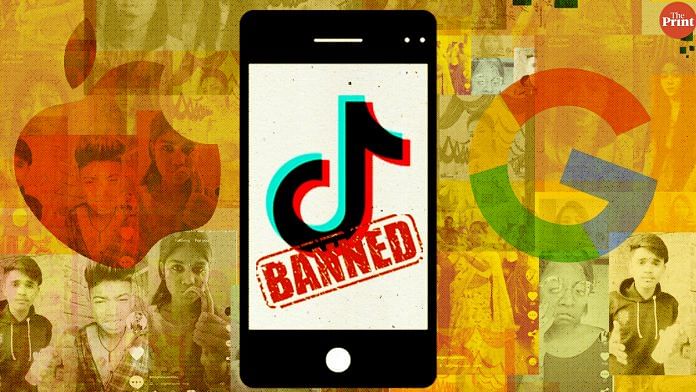New Delhi: To TikTok or not to TikTok — Pakistan just can’t seem to decide. It has banned the Chinese app. Again. For the fourth time in less than a year.
The fourth ban — and the repeated cycle of bans and unbans — on Wednesday is being compared to the pandemic waves. One user on Twitter said that there have been more waves of TikTok ban than Covid, while another said that someone sets a meeting every day to decide whether it’s a good day to ban TikTok once again or not.
This love-hate relationship is because Pakistan wants to create a business-friendly climate for foreign companies as science and technology minister Fawad Chaudhry had said after the second ban was lifted in April this year, but also because the country’s courts keep coming under pressure from conservative groups to moderate “immoral” and “obscene” content. But even the courts are not able to sustain the ban for long.
What is particularly embarrassing this time is that President Arif Alvi himself had joined TikTok a few days ago. His intention was to “spread the message of positivity & motivation” among the country’s youth. He had even conveyed greetings for Eid through a short video. Some users had wondered what Alvi would do “when the next court order comes to ban the app.” Well, the ban has come. But how long will it last?
ur telling me someone sets a meeting every damn day to decide something along the lines of “ah yes today is a good day to ban tiktok in pakistan again”
— red velvet cupcake (@tubuaishu) July 21, 2021
Also read: Jemima Goldsmith and Maryam Nawaz are fighting over their sons. And Imran Khan started it
TikTok matters
Every time Pakistan banned TikTok, starting with the 10-day restriction in October 2020, it reversed the decision because the company promised to moderate the content on its platform. In the first quarter of this year, a report said TikTok had removed nearly 65 lakh videos. It had little effect, though, as the Peshawar High Court banned the app in March in response to a citizens’ petition. That ban lasted about three weeks; the next one, in June, three days.
This time, too, the Pakistan Telecommunication Authority (PTA) said the platform has failed to take down “inappropriate content.”
The first ban on TikTok was part of a crackdown on various digital platforms and dating apps like Tinder and Grindr. But the move was termed as “a bad sign for investors” at a time when Pakistan had begun to attract international investments in its digital market.
The app is popular among the youth in villages and small, neglected towns as a medium to showcase their talent, and to further their businesses. Marginalised groups such as the transgender community have also built a huge fan following on the app. A study showed that TikTok has caused a shift in people’s perception of transgenders. Over the years, many Pakistani celebrities have also joined TikTok, making the app popular among the upper-middle classes as well.
Also read: Banned from Geo, six bullets, one car bomb, but I still won’t leave Pakistan — Hamid Mir
More than morals
Activists and journalists have been clear there is more to it than what Prime Minister Imran Khan describes as a concern — promotion of “obscenity and vulgarity.” For the critics of the government, such restrictions result from the growing political content on the app.
The PTA has blocked TikTok not because of immoral content but because TikTokers are poking fun of the Great Leader. Now Pakistan is in the same anti-China TikTok league as the US and India. Welcome to Naya Pakistan!
— Najam Sethi (@najamsethi) October 9, 2020
Members of the Bolo Bhi Organization have been at the forefront of calling out the government’s repeated attempts at censoring online content and speech. Its director Usama Khilji has said the government tends to “pick up language” from the penal code and the constitution to “define obscenity and morality, to define integrity, security and defence of Pakistan, to define public order, and also to define the glory of Islam.”
But given the history of bans on TikTok, perhaps it won’t be long before TikTok makes its comeback in Pakistan, even as freedom from restrictions take a while.
(Edited by Prashant Dixit)



